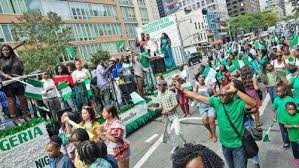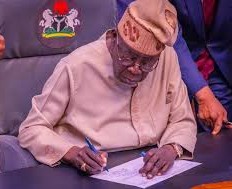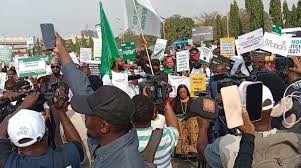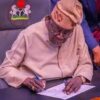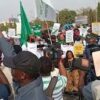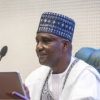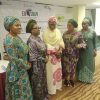CLAIM: Nigerians are creating a parallel government in South Africa and are facing deportation. VERIFICATION: False. The circulating video does not show Nigerians creating a parallel government in South Africa. It is an old video from an Igbo community family meeting in the diaspora, misrepresented to push false claims. FULL STORY A video recently surfaced
CLAIM: Nigerians are creating a parallel government in South Africa and are facing deportation.
VERIFICATION: False. The circulating video does not show Nigerians creating a parallel government in South Africa. It is an old video from an Igbo community family meeting in the diaspora, misrepresented to push false claims.
FULL STORY
A video recently surfaced online with captions and commentary claiming that Nigerians in South Africa are establishing a “parallel government” and are at risk of deportation by South African authorities. The footage has been widely shared, sparking debates and concern among social media users.
In the over 2-minute-long video, the voice of an unidentified man and a woman with the name inscription “Veronica Africa” can be heard in the background saying;
“This is the Nigerian parliament in South Africa. Those guys who make their own parliament. This is the reason why we will fight tooth and nail with this government to get rid of these people. These people must go fix their country. They cannot come into our country and start creating laws and their own state in our country. These are men who are supposed to be in Nigeria to ensure they get it right as a country. How is Africa going to unite when grown men like these are not in their country?”
This is coming after widespread misinformation about protests erupting in Ghana, where some Ghanaians accused Nigerians living in Ghana of forming their own kingdom by installing a traditional ruler for the Nigerian Igbo community.
Careful review of the footage shows a logo, a wall calendar featuring photographs of then-Nigerian President Goodluck Jonathan and South African President Jacob Zuma, confirming the timeframe to be around 2010-2015 when both men were presidents of their countries. At the top of the calendar is a text that reads, “Ochasi Family Meeting. South Africa Chapter”
Findings show that Obibi-Ochasiator is a community in the Orlu Local Government Area of Imo State, Nigeria.
Multiple internet searches returned a Facebook group which was created on the 12th of March 2018 with the name “Ochasi Family Meeting” bearing the same logo in the video as its profile picture, and a profile bio that reads, “An organisation that unites all the Ochasiator community, Ihiteowerri, Obibi and Ogberuru indigenes living in South Africa. The page is flooded with photos and videos from various activities, with its most recent post being from the 27th of June 2019.
Screenshots from the Facebook profile page
Further findings revealed that the video is not recent and does not depict any political activity or the formation of a government. Instead, it is from a routine Igbo community meeting in the diaspora, where members gathered to discuss cultural, family, and welfare matters. Such community associations are common among Nigerian diaspora groups around the world and serve as platforms for unity, social support, and cultural preservation.
Ifeanyi Eze, a member of the Orlu indigenes in diaspora, said that the Ochasi Family Meeting is not involved in any political activity and is not trying to form a parallel government.
“What we do every month is a family meeting. It is an opportunity to bring all diasporan indigenes together to have a sense of belonging. There’s nothing political about it.”
Community meetings like this are a long-standing practice among Nigerian diaspora groups worldwide. They serve as platforms for cultural preservation, social bonding, welfare discussions, and mutual assistance – not the creation of a government.
There is also no credible evidence from South African authorities or Nigerian diplomatic sources to suggest that Nigerians are creating a government structure or facing deportation on such grounds.
This is another instance of misinformation where an old video is stripped of its context and circulated to promote xenophobic narratives and sow unnecessary tension and misinformation about Nigerians abroad.
CONCLUSION
The circulating video that Nigerians are establishing a parallel government in South Africa and risking deportation is unfounded. It is, therefore, false, the video being shared actually depicts an earlier meeting of the Igbo community and has been inaccurately characterised. While Nigerians in South Africa, similar to other diaspora communities, engage in cultural and community associations, there is no substantiated evidence indicating efforts to form an alternative government.

